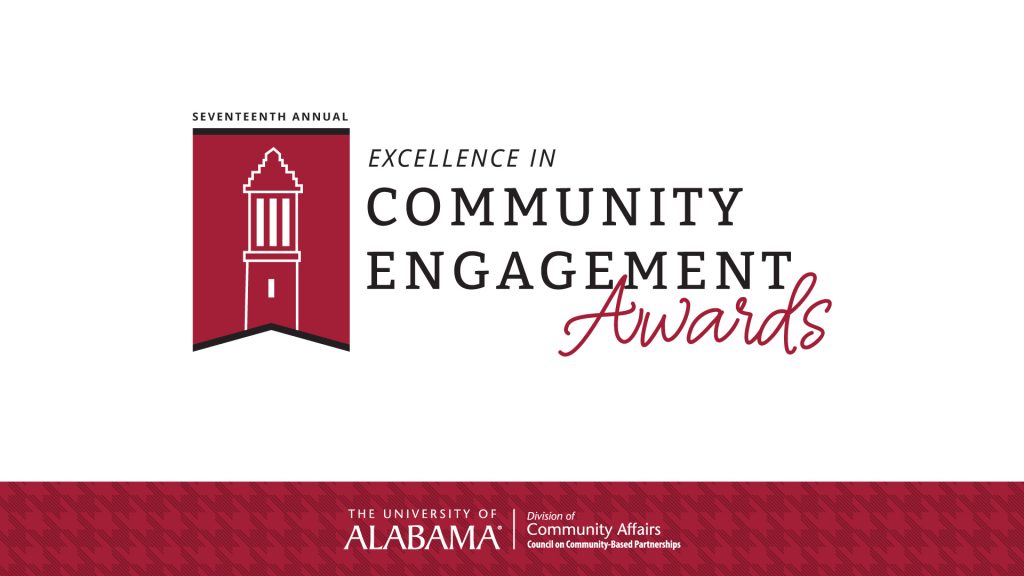
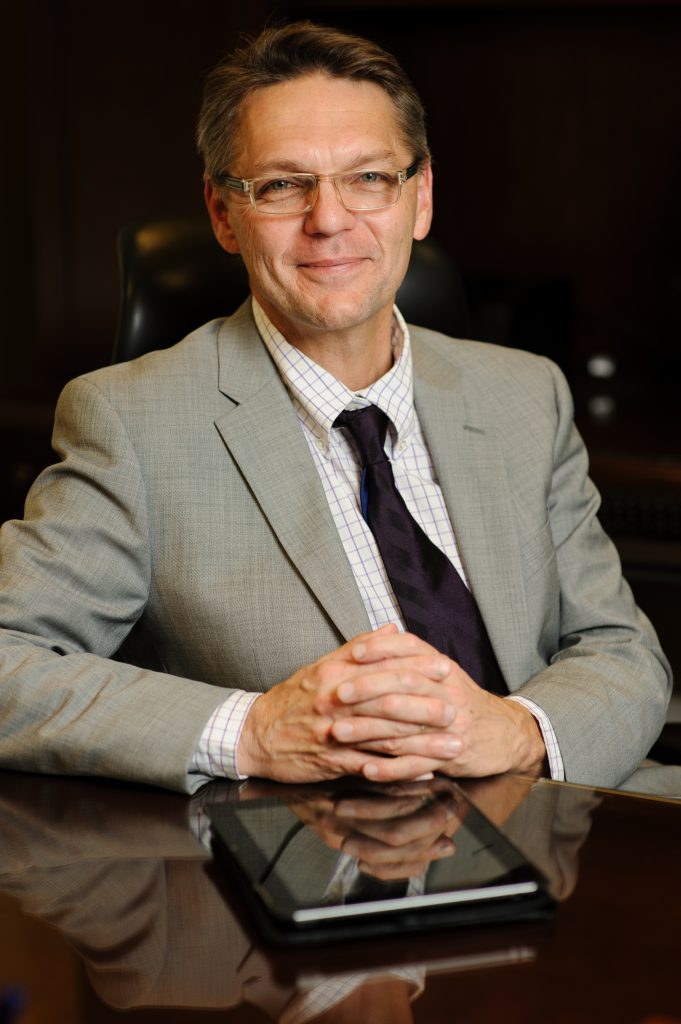
A message from
Dean Hlebowitsh
The Council on Community-Based Partnerships is a helping group. It is moved by a social consciousness borne not of political commitments but of a simple and powerful sense of trying to be helpful. Drawing from elements across the University and the wider community, the Council represents a promise to bring resources and insights to a variety of challenges facing the public. It is hard work and the individuals at the center of it often go unrecognized.
The annual awards luncheon aims to bring deserved attention to the remarkable individual efforts that embody the endeavors of the Council on Community-Based Partnerships. It is simultaneously a celebration and a serious acknowledgment of the innovative and life-reaching work being conducted by and through this body. It is also an opportunity to fête our wonderful partners. And with each successive year, even as we acknowledge our successes, we hope and understand that the best work is yet to come.
Peter S. Hlebowitsh, PhD
Executive Committee Chair,
Council on Community-Based Partnerships
Dean, College of Education
The University of Alabama
Zachary David Dodson Memorial Endowed Scholarship Recipient
Alexa Ellis
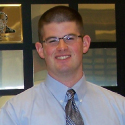
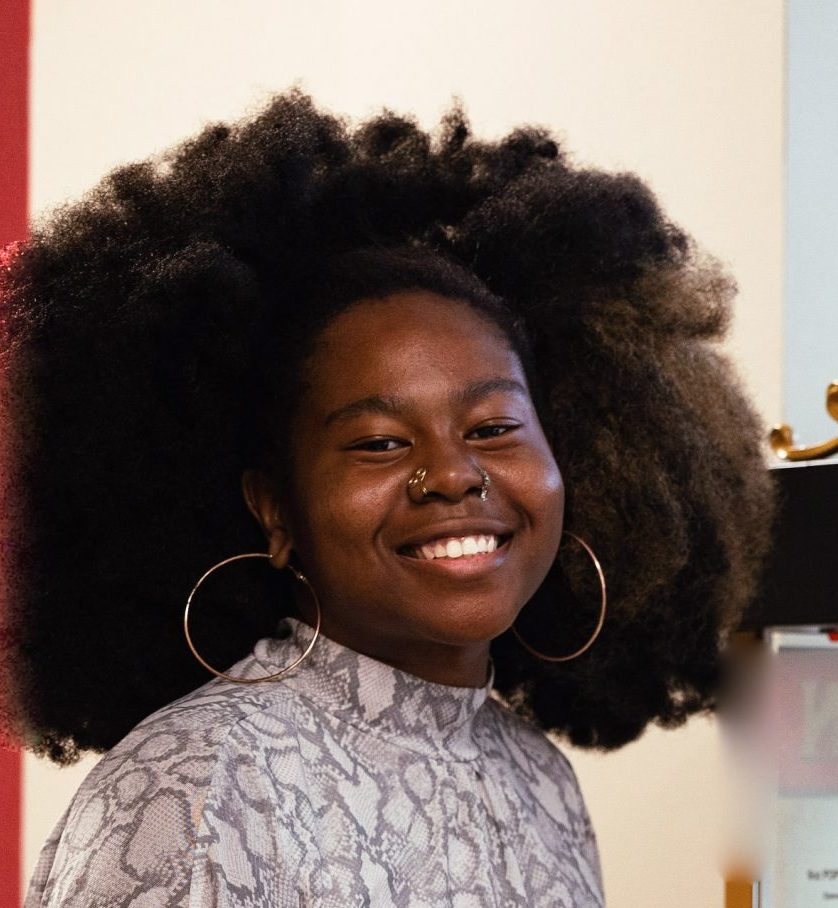
Alexa Ellis
At the time of his death in 2012, Zachary Dodson was scheduled to graduate in economics. The scholarship named in his honor is intended for a person with the qualities of excellence and faithfulness he exhibited as a work-study student in the Center for Community-Based Partnerships. Zach was known as someone you could always count on to get his work done and then offer to help others with theirs. In 2012, he was named the campus-wide Student Employee of the Year.
DISTINGUISHED COMMUNITY-ENGAGED SCHOLAR
Faculty
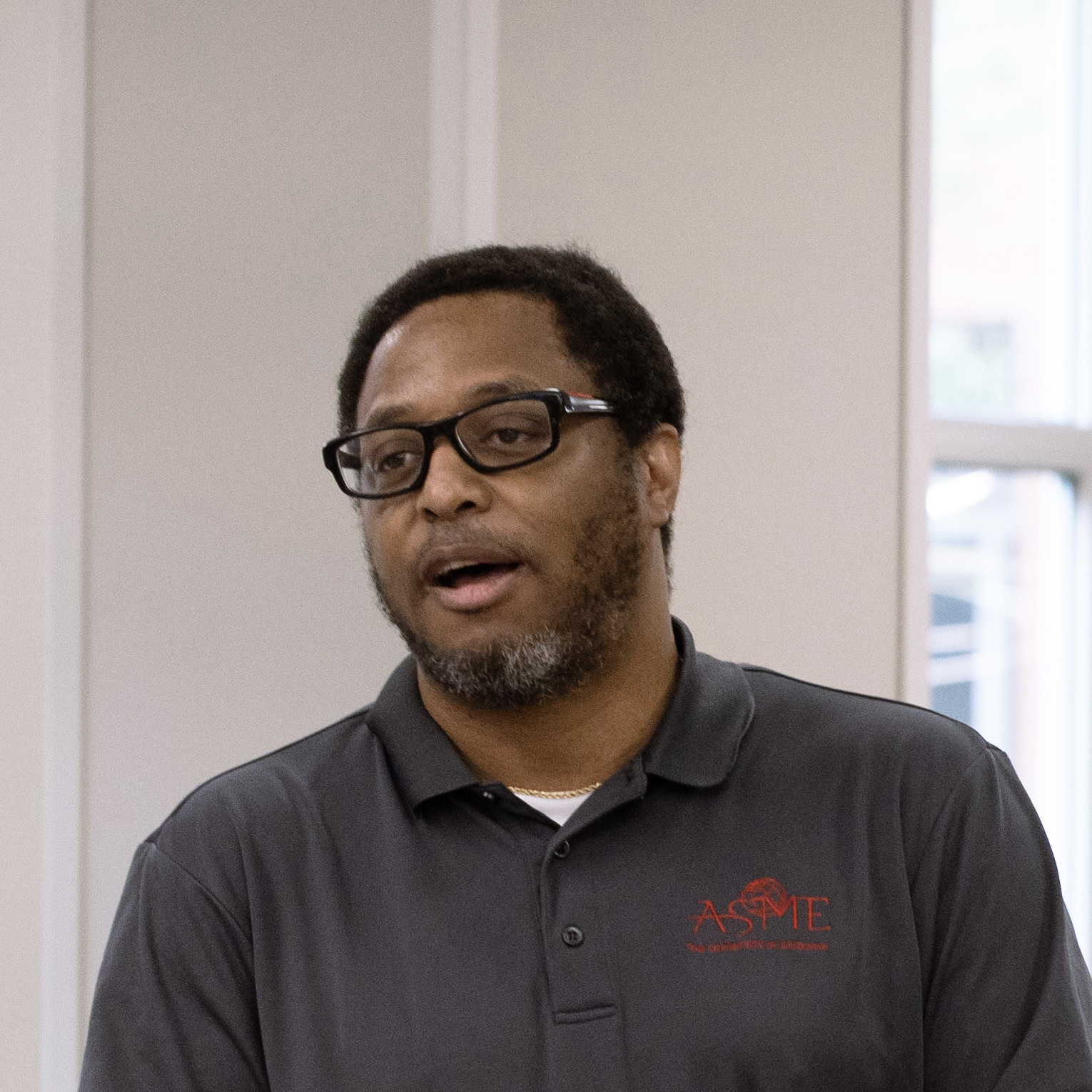
Dr. Marcus Ashford
An Associate Professor of Mechanical Engineering, Dr. Marcus Ashford is being recognized posthumously for his dedication to his students and his passion for STEM education. Ashford developed his interest in STEM disciplines at a young age, graduating from Louisiana State University in 1994 with his bachelor’s degree in mechanical engineering. He worked at Exxon Chemical and Ford Motor Company before earning his master’s and PhD in mechanical engineering (2002, 2004) from the University of Texas at Austin.
In 2004, he joined the faculty at The University of Alabama. During his time at UA, he founded and directed the Rockets & Racecars STEM Enrichment Institute, a summer program that engages high school students in various activities promoting STEM disciplines. Ashford also regularly supported the Division of Community Affairs’ STEM programs, especially the STEM Entrepreneurship Academy, a one-week residential camp held annually in July that introduces high school students to STEM career paths and innovation. In 2011, the University of Texas Academy of Distinguished Alumni recognized him as an Outstanding Young Mechanical Engineer. He was a member of the National Society of Black Engineers and Omega Psi Phi Fraternity, Inc. He passed away in October 2022.
DISTINGUISHED COMMUNITY-ENGAGED SCHOLAR
Faculty
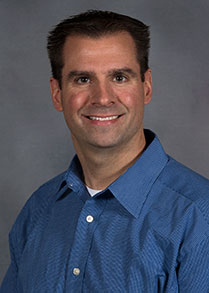
Dr. Blake Berryhill
Dr. Blake Berryhill is an associate professor in the Department of Human Development and Family Studies and director of the Marriage and Family Therapy Graduate Program in the College of Human Environmental Sciences. He received his PhD in marriage and family therapy from Kansas State University and his master’s degree in marriage and family therapy from Abilene Christian University. His research interests include the implementation and dissemination of mobile health technologies for the assessment and treatment of mental health symptomology in underserved contexts. He also examines the influence of family functioning on adolescent and emerging adult mental and behavioral health, self-compassion, systemic factors associated with parental school involvement.
Berryhill has been involved with the Parent Teacher Leadership Academy (PTLA) since 2015 in the role of research advisor. Related to PTLA, he has co-authored seven publications and co-presented on four presentations at national research conferences. Berryhill is passionate about implementing school-based mental health programs for rural schools in Alabama and collaborated with colleagues to provide school-based behavioral health services to students in rural Alabama. In 2019, he received a Council on Community-Based Partnerships Graduate Fellowship to evaluate the implementation of telehealth services in rural Alabama schools. Berryhill has published numerous book chapters and journal articles. He has a wealth of clinical expertise as a licensed marriage and family therapist in the state and is a member of the American Association for Marriage and Family Therapy and the National Council on Family Relations.
DISTINGUISHED COMMUNITY-ENGAGED SCHOLAR
Community Partner
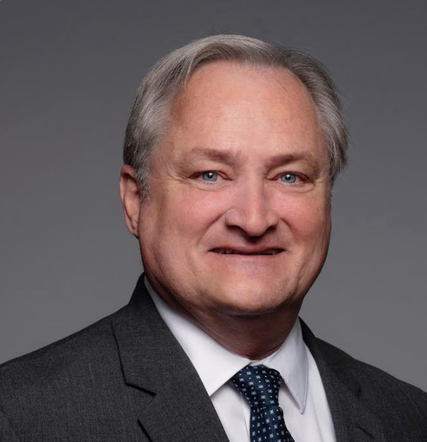

Walker Area Community Foundation
Founded 27 years ago, the Walker Area Community Foundation is a nonprofit, grantmaking organization. Its mission is to build a permanent endowment that will forever help support the charitable needs of the community and improve the quality of life for the people of Walker County and the surrounding area. Since its inception, the Foundation has grown from $6 million to more than $112 million, while giving away $29 million to more than 490 nonprofit organizations across the state.
When the devastating tornadoes swept across West and Central Alabama in 2011, the Foundation transitioned to the role of a true community partner by partnering with Walker County nonprofits to provide disaster relief, strengthening the relationships between local donors as well as regional and national funders. The Foundation continues to support quality of life through funding initiatives involving the arts and humanities, education, recreation, elder care, health and social welfare. As this year’s recipient of the Distinguished Community-Engaged Scholar Community Partner Award, the Foundation is being recognized for its dedication to creating reciprocal partnerships throughout Walker County and central Alabama, and for developing collaborative relationships that encourage engaged learning opportunities for UA students.
DISTINGUISHED COMMUNITY-ENGAGED SCHOLAR
Staff
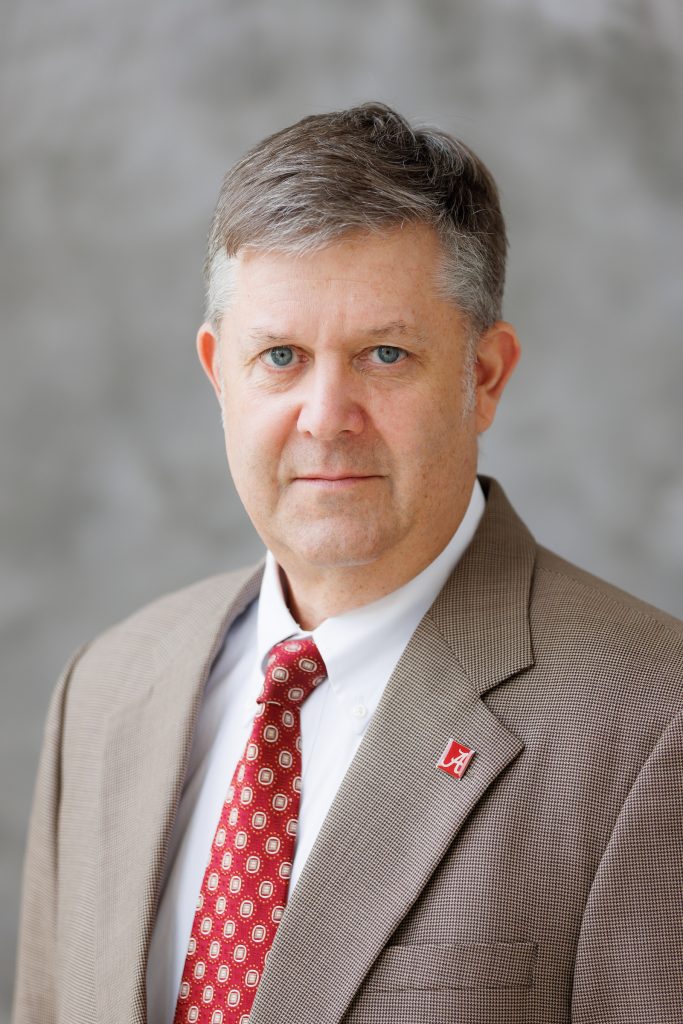
W. Ross Bryan
Dr. W. Ross Bryan is the associate dean and an associate professor at the Honors College. He received his PhD from UNC-Chapel Hill, his MS from Florida State University and his BA from UNC-Asheville. His research interests include construction of social identities, experiential education, outdoor leadership and sociology of education. Bryan began teaching at The University of Alabama as an adjunct professor from 2006–2011, before joining the Honors College faculty in 2015. In 2022, he was appointed associate dean for the Honors College. His administrative role has since been broad and diverse and included leading the collaborative effort to reconstruct the Honors College student academic matriculation and develop Student Learning Outcomes.
As associate dean, Bryan works with student development and student engagement. In his role as a faculty member, he teaches classes ranging from power, societies and dissent, to rocketry, and has developed and taught several upper-class courses in the College, with an emphasis on engaged learning. He has been instrumental in forming campus-wide partnerships that include recruiting colleagues in the field of engaged scholarship to teach in the Honors College. He is active with numerous University committees. In 2019, he was appointed to serve on the Core Curriculum Oversight Committee and the Academic Space and Schedule Oversight Committee, and was named the Honors College liaison for the Black Faculty Staff Association and Community-Based Partnerships.
DISTINGUISHED COMMUNITY-ENGAGED SCHOLAR
Student
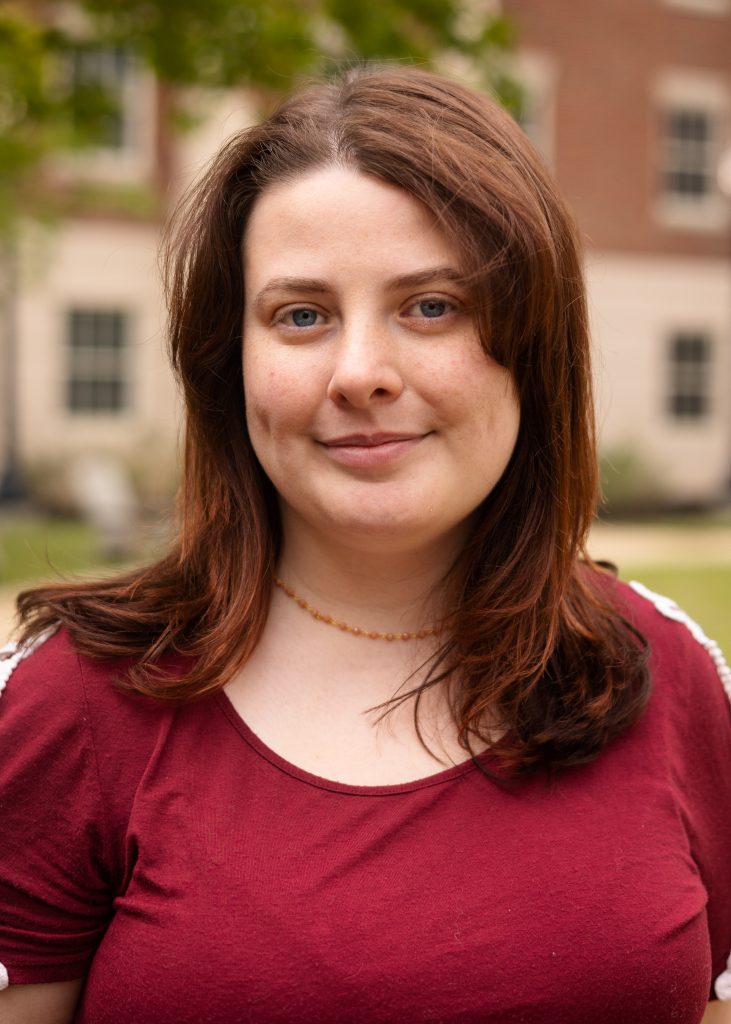
Katie Johnson
Kaitlyn “Katie” Johnson is a graduate student in the Department of Religious Studies and will graduate with her MA in Religion and Culture in spring 2023. As a student assistant and researcher, she collaborated on the project, A Global Critical Philosophy of Religion, in which she communicated with scholars of religion and philosophy to coordinate educational video materials examining cross-cultural conceptions of the self. She has been a member of the Office of Global and Community Engagement (GCE) in the Center for Community-Based Partnerships (CCBP) since 2018.
Over the years, her duties have included coordinating conversational language and cultural learning opportunities for American students and international visitors, tutoring international visitors in conversational English, organizing events and seminars, presenting at conferences and council meetings, recruiting students to the GCE, and maintaining program data for Global Café and the Language Partners program. Throughout the spring 2023 semester, she helped coordinate meeting activities for the International Spouse Group. Katie represents CCBP at many of its events and programs, including Vision Days, BLAST Academy, STEM Showcase, the Parent Teacher Leadership Academy, the Winning Grants and Sustaining Communities program and the New Faculty Community Engagement Tour, as well as the Realizing the Dream concert and legacy banquet. She earned her BA with honors in anthropology from UA in May 2021 and is a past recipient of the Zachary David Dodson Memorial Endowed Scholarship.
EXCELLENCE IN COMMUNITY-ENGAGED SCHOLARSHIP
Civic Engagement
John Dodd
Voter Engagement
Student | Student Government Association
John Dodd served as an SGA senator where he passed multiple pieces of legislation including a resolution recommending that UA declare federal elections as a holiday, which would allow faculty and students the opportunity to cast their votes without having to worry about missing work. He also collaborated with the local Democratic Party in Tuscaloosa to work with candidates that were running on both the state and federal levels. Through this collaboration, he was able to connect multiple candidates with certain partisan student organizations throughout the UA campus. Additionally, he served on Stacey Abrams’ campaign for governor as a regional field director for Southwest Georgia, lending him practical experience as a field strategist for large-scale elections. In part due to Dodd’s efforts, the area of Columbus, Georgia, had the highest increase in youth engagement with voting in the United States this past election cycle.
Dr. Jessy Ohl
COM 341: AMERICAN POLITICAL RHETORIC
Faculty | Associate Professor, Department of Communication Studies
Dr. Jessy Ohl is an associate professor in the Department of Communication Studies whose research interests include war rhetoric, visual rhetoric, public memory and political communication. His research explores the consequences of public messages, images and arguments for democracy, social change, and war. He is especially concerned with the weaponization of communication to incite violence and with developing strategies for instilling more charitable and collaborative forms of identification. To provide students with experiential learning in civic engagement, Ohl incorporated learning opportunities centered around the 2022 midterm election in his COM 341: American Political Rhetoric course, in which students examined the role of election officials during elections. In particular, students learned about the increased hostility and threats directed at election officials. They also had opportunities to serve as poll workers and canvassers throughout Tuscaloosa during the 2022 midterms.
EXCELLENCE IN COMMUNITY-ENGAGED SCHOLARSHIP
Engaged Scholarship
Dr. Kristine Jolivette
Improving Juvenile Justice Facilities
Faculty | Paul and Mary Harmon Bryant Endowed Professor, College of Education
Dr. Kristine Jolivette has dedicated her life to making a positive impact on young adults in juvenile justice facilities through her research and service. She has a record of grant-funded research, publications and participation in workshops that have built reciprocal community partnerships that resonate in powerful and important ways across the University. Most recently, Jolivette secured a multi-million-dollar grant from the Bureau of Justice Assistance to help juvenile justice residential treatment facilities improve their climate, including supporting community stakeholders, their relationships with facilities and facilitation of partnerships for children and youth when they leave the facilities. Also, she created a Think Tank of juvenile justice and residential treatment facilities encompassing four states with monthly, virtual convenings. Jolivette exemplifies that her research is more than just data. She forms relationships with the youth and staff she worked with. Few researchers are as dedicated to building strong community partnerships with restrictive education settings in Alabama as Jolivette.
Dr. Haley Townsend
Project Wellness in Motion
Faculty |Assistant Professor, Capstone College of Nursing
Dr. Haley Townsend is an assistant professor at the Capstone College of Nursing (CCN). She currently teaches in Evidence-Based Practice and serves as the co-course leader and teaches in Community Health Nursing. Townsend, in collaboration with other CCN faculty members, launched Project Wellness in Motion in the summer of 2021, which serves to promote mobile clinic health and wellness in rural Alabama. Project Wellness in Motion began as a holistic health-screening fair in July 2021 for community members in Uniontown, Alabama. Volunteer nursing students measured cholesterol, glucose values and vital signs. In addition, health screenings for stigmatized conditions, such as HIV, sexually transmitted infections, depression and anxiety were available. Community agencies were present for on-site health referrals for any abnormalities, and nursing students provided health coaching and education. In 2022, Project Wellness in Motion continued as a health and wellness resource fair during the second annual Uniontown Color Run. Faculty and nursing students provided a 5K, 10K, and 5K-walking training program for race participants to assist in fitness coaching before the race. During the race, CCN hosted a health fair to conduct health screenings and offer counseling about the COVID-19 vaccine.
Justin McCleskey
Student
As an intern with the Alabama Appleseed Center for Law and Justice, Justin McCleskey created and published a 15-page report titled Unsustainable: Alabama’s Increasing Trend of Keeping the Elderly Behind Bars, which detailed Alabama’s reliance on life sentences for a wide range of offenses in an already strained state prison system. The report was covered by The Tuscaloosa News, Alabama Political Reporter and the Montgomery Advertiser. Additionally, these findings will serve as a resource during the 2023 Alabama legislative session for the policy team at Appleseed to demonstrate the urgent need for criminal justice reform. McCleskey also helped collect and analyze survey data from 401 respondents on experiences with violence and crime in the state for an upcoming report examining Alabama’s existing responses to violence. McCleskey is also passionate about community-engaged research on campus. He was one of 12 students selected for UA’s Advisory Council on Wellness, where he served as a student liaison for effective campus resources with Dr. Ruperto Perez, vice president of Student Health and Wellness.
Jillian Maxcy-Brown
Addressing Infrastructure Challenges in the Black Belt Region of Alabama through Evaluating Wastewater and Water Access Affordability
Student
A 2020 Council Awards Graduate Student Fellowship recipient, Jillian Maxcy-Brown is a doctoral student in Civil Engineering. Her research focuses on water and sanitation solutions for low-resource communities. Wastewater and water affordability have become a pressing concern in the U.S. as the cost of collection, distribution and treatment continues to rise rapidly and reports have revealed that millions of residents are currently experiencing a lack of access to proper wastewater management. While previous affordability studies have excluded small community systems and households not connected to networked systems, Maxcy-Brown’s research, Addressing Infrastructure Challenges in the Black Belt Region of Alabama through Evaluating Wastewater and Water Access Affordability, will be the first to develop state-level affordability maps that account for all types of systems. This project builds upon other efforts to address wastewater infrastructure challenges in the Black Belt region of Alabama to ensure that solutions are financially sustainable for the local communities and proposes an alternative metric that accounts for income inequality.
Dr. Cheryl Fondren & Dr. Allison Hooper
Improving Kindergarten Readiness through the JumpStart Summer Program
Dr. Alison Hooper | Assistant Professor of Early Childhood Education
Dr. Cheryl Fondren | Director of United Way of West Alabama’s Success by 6 program
Dr. Alison Hooper and Dr. Cheryl Fondren collaborated to address kindergarten readiness through their research, “Improving Kindergarten Readiness through the JumpStart Summer Program: A Pilot Study.” They received a 2020 Council Travel Fund to present this study at the National Research Conference for Early Childhood. The JumpStart kindergarten program is a summer program to address the learning gap between children who have attended pre-k and those who did not. The program is taught by local early childhood teachers within the school and is offered four days a week for five weeks, totaling 20 days. Hooper and Fondren were looking at a pilot preliminary descriptive data of whether children who attended showed gains in their literacy skills, their conceptual knowledge, and their self-regulation or social-emotional learning from the start to the end of JumpStart. They assessed 137 children in 11 JumpStart classrooms during the study. UA partners assisted with data assessment. These were primarily undergraduate and graduate students within the College of Education. Based on the data, children showed statistically significant gains in each area. Hooper and Fondren hope to continue to expand the program across West Alabama.
Sally Smith, J.D.
Alabama Association of School Boards
Sally Smith, J.D. | Executive Director, Alabama Association of School Boards
As executive director of the Alabama Association of School Boards (AASB), Sally Smith manages the association’s affairs, directs legislative efforts, advises the AASB membership and oversees efforts to build public support for schools. She enrolled in the Winning Grants and Sustaining Communities Program in 2018–2019 with her colleague, Susan Salter. Since then, they have been active in assisting the Center for Community-Based Partnerships recruit school systems for the grant program. Recently, Smith and Salter were awarded $75,000 from the Daniels Foundation to bring a similar program to school systems in Alabama’s Black Belt region. They also received a matching grant from the State Department of Education for another $75,000. AASB and the Winning Grants Institute will pilot a program to train individuals and teams from school systems and charter schools in the Black Belt to write successful grant applications. The goal is to create grant coaches who can assist in grant training efforts that address the lack of funding in school systems across the Black Belt. The program will provide training and direct access to subject experts, as well as ongoing coaching to ensure grant efforts succeed and practices become permanent.
EXCELLENCE IN COMMUNITY-ENGAGED SCHOLARSHIP
Engaged Teaching & Learning
Dr. Chapman Greer
MGT 456/556 Visualization
Associate Provost for General Education
Dr. Chapman Greer has served as a clinical instructor of management at The University of Alabama for the last 14 years. During this time, she has made it her mission to include community engagement in all facets of her career, most notably through MGT 456/556. Taken by students all over the University, even those outside of the Culverhouse College of Business, MGT 456/556 is an experiential learning course. Incorporating community partners from West Alabama and around the world, Greer teaches her class how to listen to the needs of community clients and meet their needs in a collaborative nature. In addition to being an exceptional educator, Greer has served as the Faculty Senate president and as a co-chair of the General Education Taskforce. In all of these efforts, she connects her passion for community engagement, acting as a trailblazer for this field on UA’s campus while involving students, faculty and staff.
Dr. Yinghui Liu
STEM Education
Assistant Professor in the Department of Chemistry and Biochemistry
Dr. Yinghui Liu is an assistant professor in the Department of Chemistry and Biochemistry. An excellent teacher who is always willing to help students both inside and outside the classroom, Liu has taught general chemistry courses and organic chemistry labs since 2018. Liu was one of four recipients of a College of Arts and Sciences Community Engagement Academy Faculty Fellowship for 2021–2022. She uses community-engaged teaching activities to enhance elementary and middle school science learning by collaborating with local schools. Her many partnerships include working with Tuscaloosa Magnet Middle School, Northridge Middle School and the Boys & Girls Clubs of West Alabama. These activities helped the learning and teaching outcomes of more than 200 students and have provided UA undergraduate students with volunteering opportunities in K–12. Along with two other UA faculty members, Liu is also part of a $1 million grant through the EPSCoR Bridging EPSCoR Communities (RII-BEC) program of the National Science Foundation to enhance students’ success in graduate programs and STEM careers. Participating institutions include Stillman College, Fort Valley State University and Jackson State University — all historically Black colleges and universities.
Dr. Chandra Clark
World Games
Assistant Professor in the Department of Journalism and Creative Media
Dr. Chandra Clark has worked with more than 60 community, educational, corporate and nonprofit partners to engage students in collaborative 360-degree interactive multimedia projects, videos, websites, interactive maps and photo galleries. One of her most extensive partnerships in experiential learning was with the 2022 World Games in Birmingham, where she expanded community partnerships from West and Central Alabama to an international level. She taught a special topics class where students created 360-degree multimedia virtual tours — 30 in all — of 16 different venues culminating in more than 80 edited 30-second videos shot, more than 100 edited 30-second 360 videos with graphic locators, 580 written informational tags for each photo, video, and 360 video, three drone videos, and scooter 360 tours through park venues. Students also developed 44 Google maps of the surrounding communities for the venues, featuring restaurants, parks, entertainment and points of interest. All content was published on The World Games 2022 website. Clark secured grant funding to pay for students’ travel expenses to Birmingham and the 360-degree camera equipment for the multimedia endeavor. She also served as a liaison to connect students to summer job opportunities for The World Games through International Sports Broadcasting and Birmingham TWG Production.
Seed Fund Recipients
Wood and Springs
Allison GrantAssistant Professor, Department of Art and Art History
Community Partner
Kristina Mullenix, Graduate Student, UA Department of History
Herb Ferrette, Founder and CEO, Little USA Solar
Dr. Chandana Mitra, Associate Professor of Geosciences, Auburn University
Amount Funded $5,000
Wood and Springs is a fine art photography project that will engage collaborative storytelling methods to highlight how local circumstances intersect with geopolitical issues related to energy production in Brookwood and Union Springs, Alabama. The daughter of a miner, graduate student Kristina Mullenix, who grew up in Brookwood, is in the beginning stages of an oral history project on mining in Brookwood and will collaborate for part of the project. The team will also photograph the work of Little USA Solar and its founder, Herb Ferrette, whose family has lived in Union Springs for more than 100 years. Little USA Solar is a nonprofit organization dedicated to renewable energy in Union Springs. Dr. Chandana Mitra, associate professor at Auburn University, sits on the board at Little USA Solar and will also collaborate on the photo story project. The team will incorporate historical records, social media posts and collaboratively made photographs and text to deliver the multilayered project highlighting the impact of energy production in these communities.
The Period Study: Exploring and Addressing the Needs of Menstruating Adolescents
Dr. Stephanie McClureAssistant Professor, Department of Anthropology
Community Partner
Dr. Tonya Dukes-Bozeman, Conecuh County Schools
Amount Funded $4,917
The Period Study is a partnership between faculty and students in the Department of Anthropology and Conecuh County Schools that developed in response to a growing awareness of period poverty among American women and girls of limited economic means. For school-age girls, an inadequate supply of period products has been correlated with missed days of school, which affects school performance. The proposed project seeks to assess the need for period supplies and information about period management among menstruating students through three phases. The first phase involves surveying menstruating students’ material and informational period management needs. During Phase II, researchers will share the survey findings with the community to engage them in the conversation about how to support students’ need for period supplies and information about managing periods. Phase III involves conducting a series of focus groups with menstruating students to get more detail about their specific needs. Funds will support data collection and manuscript preparation. Once data analysis is complete, the research team will share results with the community and invite them to collaborate in designing a health curriculum to address these needs.
Graduate Fellowship Recipients
Mary Eminue
Master’s Student, Department of GeographyProject
From Flood Particles to Flood Plans: Assessing and Planning for Extreme Flood Risk in the Tennessee River Valley
Principal Investigator
Dr. Lisa Davis Associate Professor, Department of Geography
Community Partners
Matthew Gage, Office of Archeological Research; Tessa Harden, U.S. Geological Survey
The purpose of this project is to improve the safety of people living in the Tennessee River Valley by working with federal and municipal partners to improve flood hazard assessments and planning. Davis and her students are collaborating with the Tennessee Valley Authority (TVA) to improve their flood analyses and hazard plans for river infrastructure and nuclear plants. The research team has completed assessments for dams and nuclear sites and is currently assessing sites close to municipal water treatment facilities. As a graduate research fellow, Mary Eminue will conduct the flood assessment for one of the remaining sites that will contribute data to TVA and a municipal water treatment site. She will meet monthly with community partners to review her work and discuss plans for its implementation in their flood hazard assessments. Upon completion of the project, researchers will have contributed to a flood frequency analysis and flood hazard assessment while training and working with community partners to implement new federal guidelines in their practices to sustain safe water treatment. Eminue will also collaborate with Davis, publishing a manuscript detailing the findings.
Kate Grazianoe
Master’s Student, College of Community Health SciencesProject
Improving Maternal Mental Health Outcomes for Black Women in the US South: Examining Telehealth and In-Person Models of Care through an Academic-Community Partnership
Principal Investigator
Dr. Mercedes M. Morales-Aleman Assistant Professor, College of Community Health Sciences
Community Partners
Dr. Joy Bradley, Assistant Professor, College of Community Health Sciences; Dr. Nadia Richardson, Black Women’s Mental Health Institute
Research indicates that Black women are disproportionately affected by adverse maternal health outcomes compared to their non-Hispanic White counterparts. This project seeks to lessen that gap through a comparative effectiveness research study aimed at addressing mental health and social determinants of health. Between 2018 and 2020, the research team used a community-based participatory research approach to develop and test the feasibility of a home visit, telemedicine, and patient education intervention to address maternal health disparities among Black women in Tuscaloosa County. The need to prioritize multilevel mental health interventions was a key finding. The current project expands on these findings by assessing whether telehealth-delivered community health worker maternal mental health interventions are as effective as in-person interventions. The study will employ a pre- and post-test design. If telehealth-delivered mental health support is found to be as effective as traditional face-to-face support, findings may be used to inform clinical decision-making for obstetric providers in underserved communities. Graduate student Kate Graziano will assist with all aspects of the project, such as community engagement, data analysis and writing manuscripts. The long-term purpose of this project is to improve maternal mental health outcomes among Black women in the South.
Lindsey Held
Doctoral Student, Department of PsychologyProject
Partnering with Schools: Teachers Deploying the Imagination Intervention to Improving Children’s Self-Regulation and School Readiness
Principal Investigator
Dr. Ansley Gilpin
Associate Professor and Director of Graduate Studies, Department of Psychology
Community Partners
Dr. Joy Bradley, Assistant Professor, College of Community Health Sciences; Dr. Nadia Richardson, Black Women’s Mental Health Institute
This project will engage teachers in improving the Imagination Intervention. The goal of the Imagination Intervention is to create natural play prompts that teachers infuse into their daily curriculum. The research team will collaborate with schools and teachers to improve the Imagination Intervention and test if teachers can effectively deliver the Imagination Intervention in their classrooms. The Imagination Intervention uses children’s natural tendency to engage in imaginative play to exercise cognitive skills necessary for self-regulation and school success. Lindsey Held will assist Dr. Ansley Gilpin in conducting a teacher-led trial of the Imagination Intervention for her dissertation. Held will help conduct focus groups and train teachers on the intervention. She will also lead junior graduate and undergraduate research assistants in assessing children during the trial. Held will join Gilpin in presenting findings at leading research conferences and publishing the data in leading scientific journals. The research team plans to secure grant funding from the Institute for Educational Sciences for a large-scale trial of this intervention and will disseminate the intervention nationally to teacher and school forums to help teachers improve all children’s self-regulation and school readiness.
Poster Presentations
Community-Engaged Teaching and Learning Between Age Groups
PresenterJennifer Baggett
Master’s Student, Department of Geography
Research Partners
Dr. Drew Pearl
Director of Community Engagement, Research and Publications, Center for Community-Based Partnerships
Dr. Christopher Lynn
Associate Professor, Department of Anthropology
The purpose of this project is to improve the safety of people living in the Tennessee River Valley by working with federal and municipal partners to improve flood hazard assessments and planning. Davis and her students are collaborating with the Tennessee Valley Authority (TVA) to improve their flood analyses and hazard plans for river infrastructure and nuclear plants. The research team has completed assessments for dams and nuclear sites and is currently assessing sites close to municipal water treatment facilities. As a graduate research fellow, Mary Eminue will conduct the flood assessment for one of the remaining sites that will contribute data to TVA and a municipal water treatment site. She will meet monthly with community partners to review her work and discuss plans for its implementation in their flood hazard assessments. Upon completion of the project, researchers will have contributed to a flood frequency analysis and flood hazard assessment while training and working with community partners to implement new federal guidelines in their practices to sustain safe water treatment. Eminue will also collaborate with Davis, publishing a manuscript detailing the findings.
A Community-Engaged Approach to Long-Term Partnerships: A Collaboration Between Schoolyard Roots, Nutritional Anthropology and the Department of Anthropology
PresenterBaili Gall
Doctoral Student, Department of Anthropology
Research Partners
Dr. Katie Chiou Assistant Professor, Department of Anthropology
Dr. Holly Horan Assistant Professor, Department of Anthropology
Emily Locke Doctoral Student, Department of Anthropology
Matthew Pappalardo Master’s Student, Department of Anthropology
Community Partner
Schoolyard Roots
Since 2020, students in Dr. Holly Horan’s Nutritional Anthropology course have learned how to integrate community-engaged methods and anthropological research skills. This course has an ongoing partnership with Schoolyard Roots (SYR), a nonprofit organization in Tuscaloosa that provides hands-on garden education in 11 elementary schools. Together, SYR and the Nutritional Anthropology class have been establishing a plan for sustainability and ongoing partnership to strengthen relations between SYR and UA as well. During the 2021–2022 academic year, the graduate student team worked with Dr. Horan and SYR to begin the initial planning stages for the second family food event that was hosted during the spring 2022 semester. This semester, there was an emphasis on laying the groundwork for establishing a sustainability plan. The event was hosted at Woodland Forrest Elementary School. A new graduate student from the spring 2022 semester cohort was added to the graduate student team and two of the members of the graduate student teams volunteered regularly with SYR. The class is currently divided into four groups that will be managed by Dr. Horan, Dr. Chiou, and the graduate student team.
HomeFirst: Our Student and Community-Led Approach to Promoting Financial Capability and Housing Stability Among Low- to Moderate-Income Populations
PresentersAyana Hendricks-Boyland
Master’s Student, School of Social Work
Victoria Duignan Master’s Student, Department of Consumer Sciences
Kefentse Kubanga
Doctoral Student, School of Social Work
Research Partners
Habitat for Humanity Tuscaloosa
The purpose of this project is to improve the safety of people living in the Tennessee River Valley by working with federal and municipal partners to improve flood hazard assessments and planning. Davis and her students are collaborating with the Tennessee Valley Authority (TVA) to improve their flood analyses and hazard plans for river infrastructure and nuclear plants. The research team has completed assessments for dams and nuclear sites and is currently assessing sites close to municipal water treatment facilities. As a graduate research fellow, Mary Eminue will conduct the flood assessment for one of the remaining sites that will contribute data to TVA and a municipal water treatment site. She will meet monthly with community partners to review her work and discuss plans for its implementation in their flood hazard assessments. Upon completion of the project, researchers will have contributed to a flood frequency analysis and flood hazard assessment while training and working with community partners to implement new federal guidelines in their practices to sustain safe water treatment. Eminue will also collaborate with Davis, publishing a manuscript detailing the findings.
The Dynamic Doulas: Increasing Access to Doula Care in Alabama
PresenterRebecca Lewis
Undergraduate Student, Department of Health Science
Emily Locke
Doctoral Student, Department of Anthropology
Dr. Holly Horan
Assistant Professor, Department of Anthropology
Research Partners
Dalia Abrams
Director, BirthWell Partners
The purpose of this project is to improve the safety of people living in the Tennessee River Valley by working with federal and municipal partners to improve flood hazard assessments and planning. Davis and her students are collaborating with the Tennessee Valley Authority (TVA) to improve their flood analyses and hazard plans for river infrastructure and nuclear plants. The research team has completed assessments for dams and nuclear sites and is currently assessing sites close to municipal water treatment facilities. As a graduate research fellow, Mary Eminue will conduct the flood assessment for one of the remaining sites that will contribute data to TVA and a municipal water treatment site. She will meet monthly with community partners to review her work and discuss plans for its implementation in their flood hazard assessments. Upon completion of the project, researchers will have contributed to a flood frequency analysis and flood hazard assessment while training and working with community partners to implement new federal guidelines in their practices to sustain safe water treatment. Eminue will also collaborate with Davis, publishing a manuscript detailing the findings.
Community-Engaged Project: An Analysis of the Communication Information Responses of a Domestic Shelter
PresenterOzioma Omah
Doctoral Student, Communication Studies
Research Partners
Dr. Bharat Mehra
Professor, EBSCO Endowed Chair in Social Justice
Community Partner
Cadence Osborn and Derek Osborn
Turning Point
The purpose of this project is to improve the safety of people living in the Tennessee River Valley by working with federal and municipal partners to improve flood hazard assessments and planning. Davis and her students are collaborating with the Tennessee Valley Authority (TVA) to improve their flood analyses and hazard plans for river infrastructure and nuclear plants. The research team has completed assessments for dams and nuclear sites and is currently assessing sites close to municipal water treatment facilities. As a graduate research fellow, Mary Eminue will conduct the flood assessment for one of the remaining sites that will contribute data to TVA and a municipal water treatment site. She will meet monthly with community partners to review her work and discuss plans for its implementation in their flood hazard assessments. Upon completion of the project, researchers will have contributed to a flood frequency analysis and flood hazard assessment while training and working with community partners to implement new federal guidelines in their practices to sustain safe water treatment. Eminue will also collaborate with Davis, publishing a manuscript detailing the findings.
International Doctoral Students’ Experiences Working an Out-of-School-Time Program
PresenterJacob T. Peterson
Program Coordinator, Division of Community Affairs
Ph.D. Candidate in Kinesiology
Dr. Daniela Susnara
Director of Planning and Assessment for Community Engagement, Division of Community Affairs
Master’s Student, College of Human Environmental Sciences
This study explored the experiences of two international doctoral students — one female dance student and one South Korean swimming teacher. Both participants were purposefully selected for the study. The benefits to the community included receiving quality teaching and learning opportunities from instructors with different backgrounds and pedagogies. The benefits to the university consisted of providing doctoral students the opportunity to work in an American program. This research took place as part of the Swim to the Top program operated through a collaborative partnership with the College of Education’s kinesiology department. Within this department, and through the support of departmental faculty, undergraduate and graduate students are recruited to participate. As related to the study, the experiences of two international students were explored. Additionally, five undergraduate and six graduate students also participated in the program as instructors. Community partners included YMCA Barnes Branch leaders and counselors. The nature of their involvement included working with the Swim to the Top planning team members to develop the curriculum, as well as recruitment for the program. Tuscaloosa Parks and Recreation provided an accessible space for swim lessons at the Freeman Pool, as well as lifeguards to ensure swim lessons were delivered safely.
SEA the Future
PresenterJacob T. Peterson
Program Coordinator, Division of Community Affairs
Paige Rentfro
Master’s Student, Manderson School of Business
Andrea Ziegler
Director of Community Education, Division of Community Affairs
This study describes the experiences of 28 high school students in the STEM Entrepreneurship Academy (SEA) program within the Center for Community-Based Partnerships. Data for this study came from The Four Rs (Relevance, Research, Reciprocity, Resilience) (Pruitt, 2022). Students in the program were from rural and underrepresented areas of Alabama. Data were obtained through student responses to reflective questions. Each question strategically represented one of The Four Rs. Results indicated the positive impacts SEA had on participants, which further emphasized the importance and essentiality of incorporating The Four Rs into the program. Benefits included a deeper understanding of engagement problems within their communities/schools and utilizing the skills learned to implement practical solutions. Benefits to the University included promoting opportunities to in-state students and establishing credible relationships with educators in the community. Four undergraduate students and one graduate student served as counselors for SEA, and each was assigned a group of participants for the week to help guide and support them. In the recruitment of high school students, SEA worked in conjunction with the following school districts: Bibb County, Birmingham City Schools, Hale County, Marengo County, Sumter County, Tuscaloosa City, and Tuscaloosa County. Additionally, this past year SEA hosted D.H. Griffin Wrecking Company, Inc., to learn about their experience in working with on-campus demolition.
Assessing the Socio-Economic and Ecological Impact of Proposed Interstate 14 on Selma, Alabama
PresenterJack Spalding Master’s Student, Department of Geography
Research Partners
Dr. Kevin Curtin
Professor of Geography and Director of the Laboratory for Location Science, College of Arts and Sciences
Dr. Lisa Pawloski
Associate Dean for International Programs and Professor of Anthropology, College of Arts and Sciences
Dr. Pamela Payne-Foster
Professor of Community Medicine and Population Health, College of Community Health Sciences
Community Partners
Black Belt Community Foundation
Alabama Appleseed Center for Law and Justice
Black Voters Matter Fund
In fall 2021, the future Interstate 14 corridor was designated a high-priority federal infrastructure project by Congress. This proposed project would bisect central Alabama close to Selma. Based on the initial research, the routing as currently proposed could raise significant socio-economic and ecological concerns for Selma and the surrounding community. The goal of this research is to determine whether the proposed routing of Interstate 14 would be disruptive enough that alternate routes should be considered. This project seeks to engage the community of stakeholders in the Selma area to determine their thoughts and to ensure that community input is considered in the planning and design phases of the interstate. This research will be one of the largest infrastructure projects in the southern United States in recent years. Through the publication of a final report on the economic and ecological impacts on the Selma community, The University of Alabama is at the forefront of expertise on a subject of national and regional importance that currently has received little attention. The survey research and community engagement components coupled with quantitative methods will provide an early examination of the potential impacts of the proposed routings. Ideally, this investigation of the potential impacts will provide both a compelling addition to the geographic literature regarding road route choice and the spatial and economic influences of such choices and practical utility and guidance to members of the community and the planners of this project if it is fully authorized by Congress.
It Takes a Village: Designing a Community-Based Out-of-School-Time Program
PresenterDr. Daniela M. Susnara
Director of Planning & Assessment for Community Engagement, Division of Community Affairs
Ella Magerl
Program Coordinator, Center for Community-Based Partnerships
Research Partners
Faculty and/or staff in the College of Education and School of Music, Parking Services, Grounds, Division of Community Affairs, and Youth Protection
Community Partners
Tuscaloosa City Schools, Tuscaloosa County Schools and Hale County Schools
Alabama Child Nutrition Program of the Alabama State Department of Education
A phrase frequently used when raising, mentoring and educating children is “it takes a village.” The same phrase can be applied when developing and implementing community-based out-of-school programs. The BLAST Academy was launched in summer 2022 and was quickly chatted about throughout the community and on campus because of its size (300+ participants), age range (5–12), and duration (7:45–3:15 p.m. weekdays in July). While the details were interesting, the partnerships that contributed to their success were less often discussed. This poster presentation explores the collaborative partnerships necessary to launch and sustain community-based programs for youth. Collaboration among nearly a dozen on- and off-campus partners contributed to a number of positive student outcomes for participating K–8 students; outcomes that would not have been possible without the village that helped design and implement the program. Similar to faculty and staff partners, the college students involved in the BLAST Academy were critical to the project’s success. A dozen students were responsible for designing the curriculum, lesson plan and student objectives. Other students were responsible for designing team-building activities, mentoring and supervision. All worked collaboratively with UA faculty and staff to ensure the success and execution of their responsibilities.
It’s What the Kids Do: Is Social Media an Essential Strategy for College Readiness Programs?
PresenterDr. Daniela M. Susnara
Director of Planning & Assessment for Community Engagement, Division of Community Affairs
Hannah Cordbin
Graduate Student, Department of Human Nutrition and Hospitality Management
Ella Magerl
Program Coordinator, Center for Community-Based Partnerships
As technology continues to advance in social media all over the world, it is critical to examine how technology influences college readiness and preparedness. High school students are engaged in social media more than ever. As they stay connected through the use of websites and e-mail, it is important to find out how we can reach these students where they are. This project will examine how Vision Days helps high school students from rural and underrepresented areas prepare for college, the process and challenges of creating social media, and how community-university partnerships can utilize social media to meet their needs. Multiple departments were integral in the design and implementation of Vision Days. However, social media strategies were not involved. In this investigation we will examine how we engage with different partners through social media. Students are the heart and soul of this project. Our Vision Days ambassadors, who are UA students, are responsible for the creation and application of our social media efforts, as well as engaging with participants. Community partners consist of staff members of 30+ school districts that participate in Vision Days. Through social media, we are able to engage daily with students, family members and high school staff from across the state.
